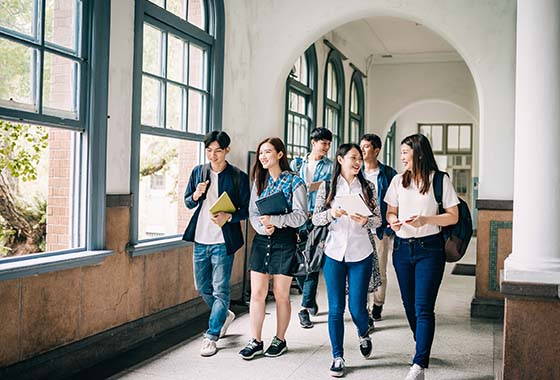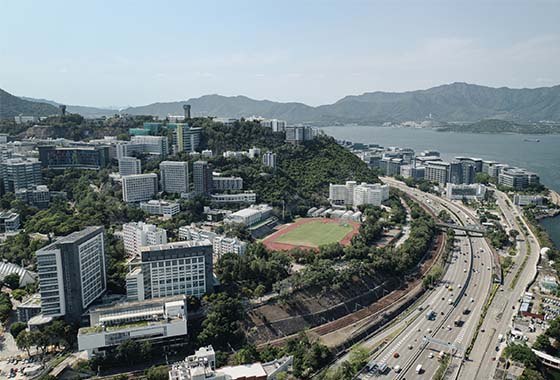Liberal studies needs a revamp
This article appeared originally in the CHINADAILY on 28 Sep, 2020.
Authors: Victor Kwok, Head of education and youth, Richard Lau, assistant researcher at Our Hong Kong Foundation.

With the recent controversy surrounding the issue of “separation of powers” in liberal studies textbooks, the subject has once again found itself at the center of public attention. Liberal studies has often courted controversy and, indeed, criticism over the years, whether it is the curriculum, assessment or teachers. What are the problems, and what is the future for the subject?
Liberal studies has been a compulsory subject in Hong Kong’s secondary schools since 2009, designed to provide cross-disciplined training in order to improve students’ critical-thinking abilities and their appreciation of different viewpoints. The subject came into being as a response to criticisms that the city’s education culture was too examination-oriented and rigid. Despite the well-intended vision, there were a lot of problems in the implementation, such as the lack of clarity in the extremely broad curriculum, unsuitable assessment methods, and uneven teaching standards, which raise the question of whether the subject is able to achieve its objectives at all.
Education innovation is a continuous process with adjustments where necessary. We believe liberal studies is a subject that is growing in importance, but comprehensive reform is needed.
To throw some light on the subject, we have analyzed five interrelated aspects of liberal studies, including the curriculum, assessment, teaching materials, teaching process and articulation. We would like to share some of the main points of our study on this issue.
Liberal studies is intended to help students develop higher-order thinking skills through an issue-inquiry approach by researching and discussing social issues, through which they are expected to grasp various concepts and thinking methods. However, with the overly broad curriculum and the vaguely defined guidelines, students often end up simply reciting current affairs issues with little consideration given to fundamental concepts. The unrealistically ambitious curriculum proved challenging for both teachers and students, which requires teachers to complete many broad themes in just 168 teaching hours, with only 14 hours to cover wide-ranging topics like “science, technology and public health”, “Chinese culture and modernity”, and “rule of law and social-political participation”.
The Liberal Studies Curriculum and Assessment Guide lists out questions for inquiry, such as “How is people’s understanding of health affected by economic, social and other factors?” Teachers are expected to guide students accordingly. However, the guide falls short of explaining key concepts that students need to learn in order to truly understand and discuss them, such as “infectious diseases” and “disease prevention”. Without key concepts clearly defined and learned as a prerequisite, discussions tend to become hollow or newspaper-based.
A joint survey we conducted with Lingnan University’s Public Governance Programme found 65 percent of teachers struggled to explore all the concepts in depth within the tight time frame. In addition, liberal studies is supposed to provide cross-disciplined learning and knowledge with its aim being “Arts for science, science for arts”, but the current curriculum is biased toward humanities at the expense of science.
The teaching process was also controversial, especially teaching materials and teacher arrangements. Liberal studies spans many academic disciplines and areas, requiring the teacher to know everything while teaching with multiple teaching materials, creating a steep challenge for both teachers and students. Research shows teachers in liberal studies spend more than 50 percent more time preparing classes compared to other subjects, while 76 percent of respondents feel the demand of liberal studies is too tough for teachers, suggesting that they need more support.
The Education Bureau stipulates it is necessary to use a wide range of materials for teaching liberal studies instead of relying on textbooks, hence it does not vet the textbooks. But research shows over 87 percent of teachers still rely on textbooks as the main teaching materials. The trend has lasted for years and the unvetted textbooks lack uniform quality. Besides textbooks, teachers also use social-media content as teaching materials, and 39 percent of the respondents used internet resources as one of the main teaching materials, which are even more difficult to vet than textbooks.
Assessment in liberal studies is a complex process. One of the difficulties is in accurately grading the students’ critical thinking and higher-order thinking skills. Public examination with open-ended essay questions are the norm, which is similar to that for humanities subjects. The tight time limit encourages students to use rehearsed essay-writing frameworks, with emphasis on examination skills and language abilities just like other humanities subjects. This, however, limits their imagination and does nothing to help their higher-order thinking. Research found 93 percent of teachers admit past examination questions and assessment criteria have major influence on their focus of teaching, suggesting students are “thinking” for the purpose of examination, rather than learning. As such, for a compulsory core subject for university entrance, liberal studies has not only failed to achieve the objectives of improving students’ critical-thinking abilities and their appreciation of different viewpoints, it actually contradicts them.
In order to face the fast-changing global challenges, many major countries are putting more emphasis on nurturing critical thinking, communication skills, civic awareness, and self-learning abilities of their new generation. Education innovation is a continuous process with adjustments where necessary. We believe liberal studies is a subject that is growing in importance, but comprehensive reform is needed.



